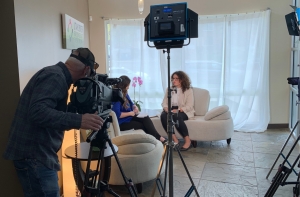Jennifer Van Gorp
Join us this Friday for our virtual event, "Calm and confident approaches for assessing self-harm and suicidality: Best practices for risk and liability management". This talk will cover current best practices for managing self-harm and suicide risk. It will explore the ethical issues that arise when working with this population.
About the presenter:
Sheila Crowell, Ph.D. is the Director of the Dialectical Behavior Therapy Program and the Director of Research and Training for UCEBT. She received her doctoral training in child clinical psychology at the University of Washington and completed her pre-doctoral internship at Seattle Children's Hospital. Dr. Crowell has over a decade of specialized training in Dialectical Behavior Therapy (DBT), this includes seven years of supervised training in the treatment of self-injury and personality disorders by Dr. Marsha Linehan, who developed Dialectical Behavior Therapy.
Dr. Crowell is also an associate professor of psychology at the University of Utah and an expert in the prevention of suicide, self-injury, and personality disorders. Dr. Crowell has received research funding from the American Foundation for Suicide Prevention and the National Institute for Mental Health. Her objective is prevent suicide and suffering through the integration of scientific understanding and compassionate care.
Register here: https://ucebt.com/events
UAMFT Conference
We will be staffing a booth at the Utah Association for Marriage and Family Therapy Spring Conference on Thursday, May 12 and Friday, May 13, 2022. We have so many exciting things to share with the MFT community including our work with Parent-Child Interaction Therapy (PCIT), Gottman Consultation group, our Assessment and Testing Program, and two upcoming events! Come on by and let's chat!
We Won Best of Utah!
We are so honored to announce that UCEBT has been voted the winner of this year's City Weekly "Body & Mind" Best of Utah 2022 for "Best Mental Health Treatment Center"!
Published by City Weekly: "UCEBT's mission is to improve the quality of mental health by enhancing access to comprehensive, evidence-based treatments. Such psychotherapies typically have clear targets, a timeline for treatment and the ultimate goal of enabling client to recover without the need for long-term therapy support. 'I don't know where I would be without their help,' says one patient. 'They were professional and caring during my entire time.'"
Thank you to everyone who voted and showed their support for evidence-based mental health treatments!
For a list of the results: https://www.cityweekly.net/utah/best-of-utah-body-and-mind/BestOf?oid=18275733
May is Maternal Mental Health Awareness Month
Between 15-20 percent of new moms experience postpartum depression and anxiety; if left untreated, this can cause lasting negative health effects on the mom and the child. The month of May recognizes Maternal Mental Health Awareness. In honor of maternal mental health, we have compiled a list of our favorite resources that includes both local and national resources for maternal mental health. One resource in particular is PSI Utah; this is likely the most comprehensive resource page for maternal mental health in Utah. Includes hotlines/warmlines, treatment facilities, childcare services, support groups, and resources for fathers, adoptions, and doulas among others. Here's our list of resources: https://ucebt.com/resources/maternal
We're on TV!
In honor of Autism Awareness Month for the month of April, our autism specialist, Dr. Laura Rowley, will discuss the misdiagnosis of autism on KUTV’s Fresh Living Segment.
Dr. Rowley will be answering these questions:
- Why is autism commonly misdiagnosed?
- What could individuals look for that may actually reflect underlying autism?
- What help is available for individuals who may wonder if they or a loved one are on the autism spectrum?
Tune in on the following stations:
- Between 1-1:30p KUTV
- Between 2-2:30p KMYU
- Between 3:30-4p KJZZ
For those of you who cannot be in front of a TV on Friday, you can watch live at this link: https://kutv.com/watch
We are excited to announce our upcoming event "Working with Narcissism: Caring for Our Clients and Ourselves", presented by our CEO and founder, Robin Lange, Ph.D. this Friday, April 8, 2022 for 2.0 CE hour (UPA, NASW-UT, UAMFT, UMHCA).
Narcissism and Narcissistic Personality Disorder (NPD) are frequently referenced in popular culture, yet rarely discussed in context of diagnostic criteria, treatment options, or clinical prognosis. This lecture will present a brief overview of the history of this diagnosis, as well as considerations for assessment and treatment of narcissistic traits and self care for those working or interacting with people who meet criteria for this diagnosis.
About the presenter:
Robin Lange, Ph.D., counseling psychology. Dr. Lange received her doctoral training at the University of Denver and her Postdoctoral Fellowship at the SLC VA Medical Center. In addition to her position as CEO and co-founder of the Utah Center for Evidence Based Treatment (UCEBT), Dr. Lange continues her clinical practice specializing in treating adults with developmental trauma, chronic medical conditions, multiple treatment failures, personality disorder, and Narcissistic traits.
Autism Awareness Month!
In recognition of April as Autism Awareness Month, we have compiled our favorite resources related to autism. Our resource list includes various organizations, books, videos, and podcasts. We have topics such as: ASD and LGBTQA+, Neurodiversity in the Workplace, local and national resources for families, research and trainings for mental health professionals, and a Q&A video from our resident Autism specialist, Dr. Laura Rowley. Check out this list of resources here: https://ucebt.com/resources/autism If you see something we missed, please let us know by emailing
We will be hosting Walking the Tightrope: Best Practices and Ethics for Treating Suicidal Patients this Friday, March 18th from 10:00 a.m. - 12:00 p.m. MST via Zoom for 2.0 CEU hour Ethics OR Suicide (UPA, NASW-UT, UAMFT, UMHCA).
This presentation will review differences in treating acutely suicidal vs chronically suicidal patients.
This lecture will review the latest literature on crisis focused interventions, brief risk-reduction interventions and interventions that reduce suicidal behavior over the course of several months to a year.
Further we will review relevant ethics codes and practices that should guide the treatment of suicidal behavior.
About the presenter:
Presented by Jordan Kugler, Ph.D., licensed clinical psychologist. Dr. Kugler has completed intensive training in Dialectical Behavior Therapy (DBT) through the Linehan Institute and now specializes in DBT and trauma-focused interventions for the DBT Program at the Utah Center for Evidence Based Treatment (UCEBT).
The Spirit of Motivational Interviewing
Join us on Friday, March 4, 12:00 p.m. - 1:00 p.m. for "The Spirit of Motivational Interviewing: Connections to Help Foster Compassion for Clients, Decrease Burnout for Clinicians, and Improve Motivation in the Face of Ambivalence", presented by Carl Sallee, Psy.D.
This event is free to attend or $10 for 1.0 CEU, pending approval from UPA, NASW-UT, UAMFT, and UMHCA. This event is virtual, via Zoom. Register here: https://ucebt.com/events
After the event, everyone who registers will be sent the video recording, presentation slides, and CE quiz for CE credit. So, you can receive either live, "in-person" OR asynchronous CEU credit
Here's a bit more information about the presentation:
Motivational Interviewing (MI) is often thought of as a niche skill only applied in certain specialty areas when very specific behavioral change is necessary, but patients are having a hard time finding motivation to make that change. However, this presentation will be focused less on specific application of this therapeutic tool. It is more focused on empowering clinicians through discussion about how the overarching spirit of MI is applicable to any client in any setting, as a way to increase the clinician’s compassion for their patients, reduce provider burnout with challenging clients, and improve therapeutic outcomes by teaming up with ambivalent clients rather than working against them.
This presentation hopes to spread awareness of MI as an inherently person-centered tool that any provider can use to augment and enhance any other type of therapy they already utilize, and to provide practical philosophies from the spirit of MI that psychologists can adopt in their prospective settings.
About the presenter:
Carl Sallee, Psy.D. is a postdoctoral resident and licensed clinical psychologist of the Anxiety/Mood the Dialectical Behavior Therapy, and Assessment/Testing programs at UCEBT. Carl has a background in Third wave Cognitive Behavioral Therapies, Motivational Interviewing, Rogerian Person-Centered psychotherapy, and PTSD treatment.
He has a genuine belief that true empathy, validation, and unconditional positive regard for a person can help decrease any barriers to necessary changes and increase compassion and connection not only with clients, but in the world. He hopes to share this belief and hope with other clinicians during a historical context where compassion and empathy fatigue is a serious threat to burnout, and when we and our clients are likely in more pain than the world has experienced in the recent past.
Parent Child Interaction Therapy (PCIT)
Parent Child Interaction Therapy (PCIT) is an evidence based, family centered therapy that works well for children ages 2-7 that struggle with emotional and behavioral disorders (ODD, ADHD, ASD). It has also been shown to be effective for children who are at-risk of or experienced abuse.
Our PCIT specialist, Dr. Kalee Gross, is one of only 11 certified PCIT psychologists in the state of Utah. She currently accepting new clients and is also available for consultation.
Some specific problems that PCIT can help with include:
- Refusal and defiance of adults’ requests
- Easy loss of temper
- Destruction of property
- Emotional dysregulation
- Low frustration tolerance
- Difficulty with prosocial behaviors (taking turns, sharing, etc.)
- Difficulty staying seated or playing quietly
- Deliberately annoying others
- Being spiteful or vindictive
- Parent-child relationship problems
PCIT works by coaching the parents on learning and using specific skills with their children. To coach, therapists use a “bug in the ear” system where the parent and child are in one room, and the therapist is in another room where they can see the parent and child and are able to communicate with the parent through an earpiece. PCIT has also shown to be effective over telehealth and is the primary way that it is being done through UCEBT.
Another neat piece about doing it via telehealth is that parents and children are learning these new behaviors in their own home. Usually when it is done in the center, there is a transition period where these skills and learning are generalized to being used in the home, though this occurs less with telehealth.
PCIT occurs in two treatment phases.
PHASE ONE. The first phase focuses on teaching your child how good it feels to be good. This first phase also really helps increase warmth in the parent child relationship. Often times, warmth and enjoyment has taken a hit in the relationship when there has been a lot of incompliances from the child. This first phase also helps their child feel more calm and secure about their relationship with their parent and feel more confident in themselves.
Desired outcomes of the first phase of treatment in PCIT include: (http://www.pcit.org/what-is-pcit.html):
- Decreased frequency, severity, and/or duration of tantrums
- Decreased activity levels
- Decreased negative attention-seeking behaviors (such as whining and bossiness)
- Decreased parental frustration
- Increased feelings of security, safety, and attachment to the primary caregiver
- Increased attention span
- Increased self-esteem
- Increased pro-social behaviors (such as sharing and taking turns)
PHASE TWO. The second phase of PCIT provides parents with the tools to teach their children how good it feels to listen. The tools parents learn help them to remain confident, consistent, and calm or neutral in their approach to discipline with their child. These tools help improve their child’s compliance with their directions, listening and following house rules, and ability to demonstrate appropriate public behaviors.
Desired outcomes of the second phase of treatment in PCIT include (http://www.pcit.org/what-is-pcit.html):
- Decreased frequency, severity, and/or duration of aggressive behavior
- Decreased frequency of destructive behavior (such as breaking toys on purpose)
- Decreased defiance
- Increased compliance with adult requests
- Increased respect for house rules
- Improved behavior in public
- Increased parental calmness and confidence during discipline
Resources:
Video: "What Is Parent-Child Interaction Therapy?"
PCIT International Resource Page: http://www.pcit.org/for-parents.html











